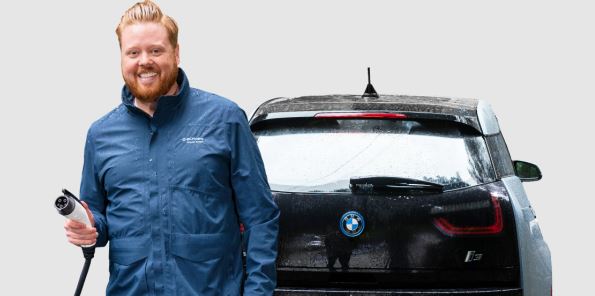Since Chris Ashley from Frederick, Maryland, first embraced his electric Ford F-150 and started driving it a year ago, his initial concerns about running out of battery power have vanished. Reflecting on his experience, Ashley acknowledged that it’s natural to have range anxiety in the beginning. However, with time, he has learned how to effectively plan his trips, manage charging, and overcome any worries about running out of charge.
A survey conducted earlier this year by the Canadian Automobile Association revealed an interesting trend: while two-thirds of drivers expressed concerns about having enough range before purchasing an electric vehicle, that number dropped significantly to just 30% after actually owning one. This shift can be attributed to advancements in battery technology and the availability of more diverse electric vehicle options in the market.
For instance, the Lucid sedan boasts an impressive range of over 500 miles per charge. However, its high price tag of nearly $140,000 may deter budget-conscious consumers. On the other hand, a study published in the journal Energies in February found that 25% of people could fulfill all their driving needs with an electric vehicle having a range as low as 143 miles, especially when supported by a home charging setup.
According to Alex Knizek, manager of auto testing and insights at Consumer Reports, electric vehicles currently offer an average range of around 250 to 300 miles, which is more than sufficient for the typical driving patterns of most people. Interestingly, Knizek highlights that while range anxiety used to be the primary concern, the industry is now witnessing a shift towards “charging anxiety” due to the limited availability of charging infrastructure compared to the widespread presence of traditional gas stations.
The United States Department of Energy reports that there are approximately 54,000 publicly accessible fast charging stations across the country, with a concentration along the coasts. However, some states still have relatively fewer than 100 charging stations. These fast charging stations are crucial for long-distance journeys, providing an 80% charge in as little as 20 minutes. In contrast, the average refueling stop at a gas station typically takes only around two minutes.
To address the charging infrastructure challenge, Consumer Reports recently highlighted that Ford has struck a deal with Tesla, allowing Ford electric vehicle owners to access about 12,000 Tesla public fast chargers throughout the United States and Canada. This collaboration aims to improve the convenience and accessibility of charging options for electric vehicle owners.
Donna Dickson, the lead engineer for the Ford Mustang Mach-E, emphasizes the need for further improvements in charging times. She believes that the key lies in making the charging experience as quick and seamless as refueling at a gas station. By working together and investing in the development of charging infrastructure, the industry can encourage more people to adopt electric vehicles and ensure their comfort and confidence in this eco-friendly mode of transportation.

